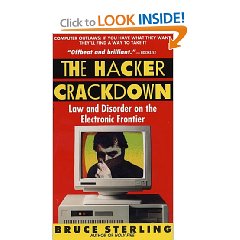May 29, 2000
H. G. Wells
First published in 1938, a modern edition is vastly improved by the addition of a critical introduction by Alan Mayne. Very much focused on how a world-brain might alter national policy-making, how Public Opinion or an “Open Conspiracy” might restore common sense and popular control to arenas previously reserved for an elite. The information functionality of the World Brain easily anticipated the world wide web as it might evolve over the next 20-30 years: comprehensive, up to date, distributed, classification scheme, dynamic, indexes, summaries and surveys, freely available and easily accessible. We have a long way to go, but the framework is there. The communication functions of the world brain would include a highly effective information retrieval system, selective dissemination of information, efficient communication facilities, effective presentation, popular education, public and individual awareness for all issues, and facilitate social networking between organizations, groups, and individuals. The world brain is the “virtual intelligence community” qua noosphere. This is one of the fundamental references for anyone thinking about the future of politics, economics, or social systems.







